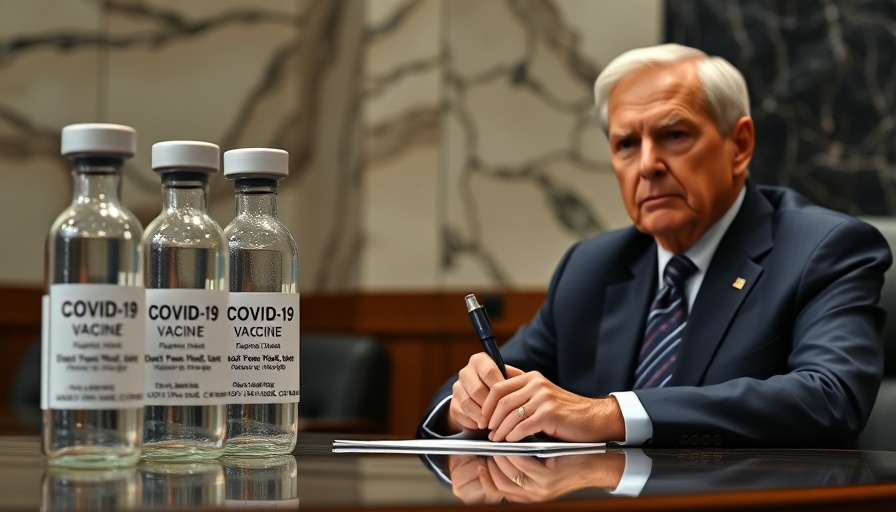
Unpacking the Senate Hearing: Understanding COVID Vaccine Risks
In a recent Senate hearing led by Senator Ron Johnson, critical issues surrounding the COVID-19 vaccine's safety were brought to light, marking what many believe is just the beginning of an extensive inquiry. Johnson emphasized the need for thorough investigations into the perceived cover-up regarding the vaccine risks, particularly myocarditis, which affects the heart and has been linked to vaccine administration in young individuals. As public trust wanes, such hearings could help bridge the gap between opposing views on vaccine safety and the government's handling of the pandemic.
A Diverse Panel of Experts: Voices of Concern
The Senate's Permanent Subcommittee on Investigations provided a platform for experts to air their grievances about vaccine safety and transparency. Dr. Peter McCullough, who testified during the hearing, spoke passionately about the consequences of the alleged cover-up, asserting that many lives could have been saved with timely warnings about vaccine-related risks. Both seasoned medical professionals and the head of Children’s Health Defense, Mary Holland, echoed concerns over public health policies, underscoring the dire need for accountability in health communications.
The Forgotten Families: Stories of Vaccine-Injured Individuals
As witnesses shared their insights during the hearing, the emotional weight of the vaccine's impact became palpable. Families who have dealt with the fallout of adverse vaccine reactions felt largely overlooked. These personal anecdotes served as powerful reminders of the human element behind the statistics. The government’s failure to offer proper compensation and resources to those affected has deepened the dialogue on the moral implications of vaccine development and deployment.
Connecting the Dots: Vaccine Safety and Public Trust
Historically, vaccine skepticism has roots in widespread skepticism towards government authority, exacerbated during the pandemic. As Johnson asserted, restoring faith in the health system post-COVID-19 will be a lengthy process. The Senate hearing not only highlighted scientific concerns but also created an avenue for individuals to voice their apprehensions. The juxtaposition between supporters and critics of the vaccine not only illustrates the polarization of the issue but also emphasizes the importance of a collaborative discourse.
Diving Deeper: What Lies Ahead for the Investigation
Johnson framed this hearing as merely the "tip of the iceberg," with more sessions to delve into the critical oversight surrounding vaccine safety protocols and government transparency. Given the substantial body of evidence, including over 2,400 pages of documents from the Department of Health and Human Services, further inquiries may yield new insights and challenge existing narratives. Tracking the forthcoming reports and hearings will be pivotal for anyone concerned about community health and vaccine safety.
The Importance of Civic Engagement: Your Voice Matters
The recent Senate hearing was a call to action for citizens to stay informed and engage with their communities about health policies. Public investment in understanding vaccine implications not only encourages accountability from government officials but also emphasizes the power of collective knowledge. As discussions around vaccine safety evolve, community voices must continue to resonate, pushing for transparency and safeguarding public trust.
Stay engaged and informed as future hearings unfold. By advocating for transparency in health communications, we can help create a more informed community ready to tackle emerging health challenges.
 Add Row
Add Row  Add
Add 



Write A Comment